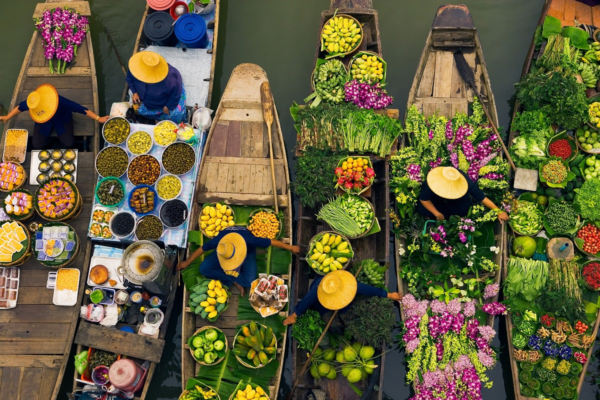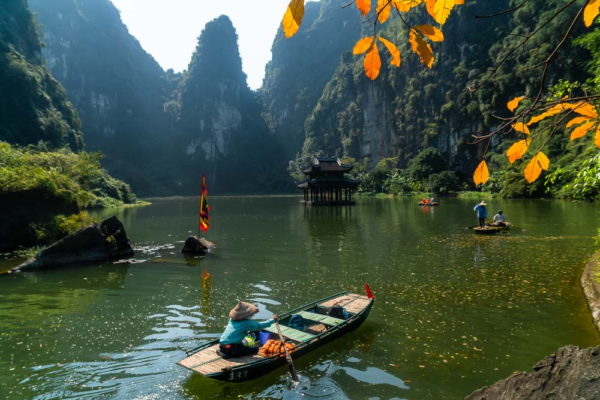Stepping off the bustling streets of Ho Chi Minh City and into the tranquil embrace of the Mekong Delta feels like entering another world. As a traveler seeking an authentic Vietnamese experience, I found myself drawn to the promise of a homestay in this lush, watery paradise. Little did I know that my journey would lead me to discover not just a place to rest my head, but a window into a way of life that has endured for generations.
The Heart of the Delta: Choosing Your Homestay
Selecting the right homestay is crucial for an immersive Mekong experience. After careful research, I settled on a family-run establishment in Vinh Long. That’s a province known for its fruit orchards and friendly locals. The homestay, a traditional wooden house on stilts, sat perched above a narrow canal, its weathered planks telling stories of countless monsoon seasons.
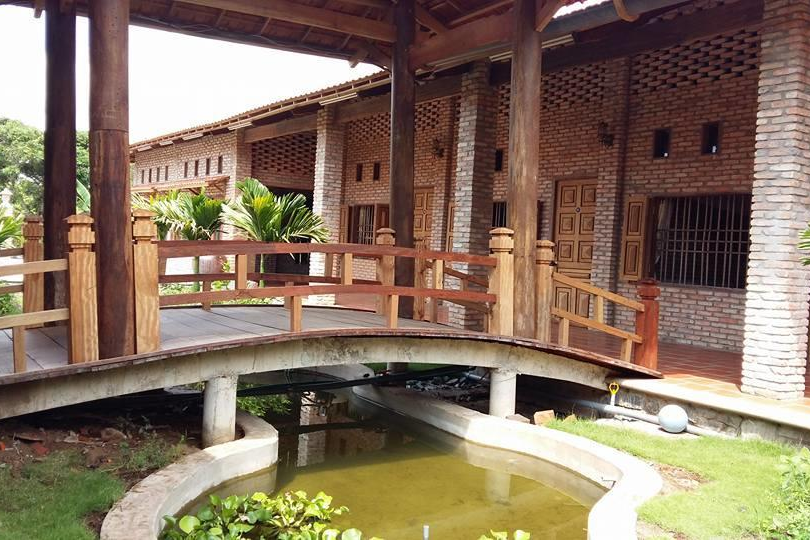
Tip: When booking, look for homestays that offer activities like cooking classes or boat tours. These often provide the most authentic experiences and opportunities to connect with your hosts.
Upon arrival, I was greeted by Tran, the matriarch of the family, whose warm smile immediately put me at ease. She ushered me into the open-air living area, where the scent of jasmine tea mingled with the earthy aroma of the river. As we sipped our tea, Tran explained the daily rhythms of delta life, from the early morning markets to the evening’s communal meals.
A Day in the Life: Embracing the Mekong’s Rhythm
My days at the homestay began with the gentle lapping of water against the house’s stilts. Breakfast was a simple affair of banh mi (Vietnamese baguette) and fresh fruit from the family’s orchard. The mangoes, in particular, were a revelation – sweet, juicy, and unlike any I’d tasted before.
Mornings were often spent exploring the surrounding area by bicycle. The Mekong cycling paths offered a unique perspective on rural life. I pedaled past emerald rice paddies, where farmers worked knee-deep in water, their conical hats bobbing like lilies. Children waved enthusiastically as I passed, their laughter carried on the breeze.
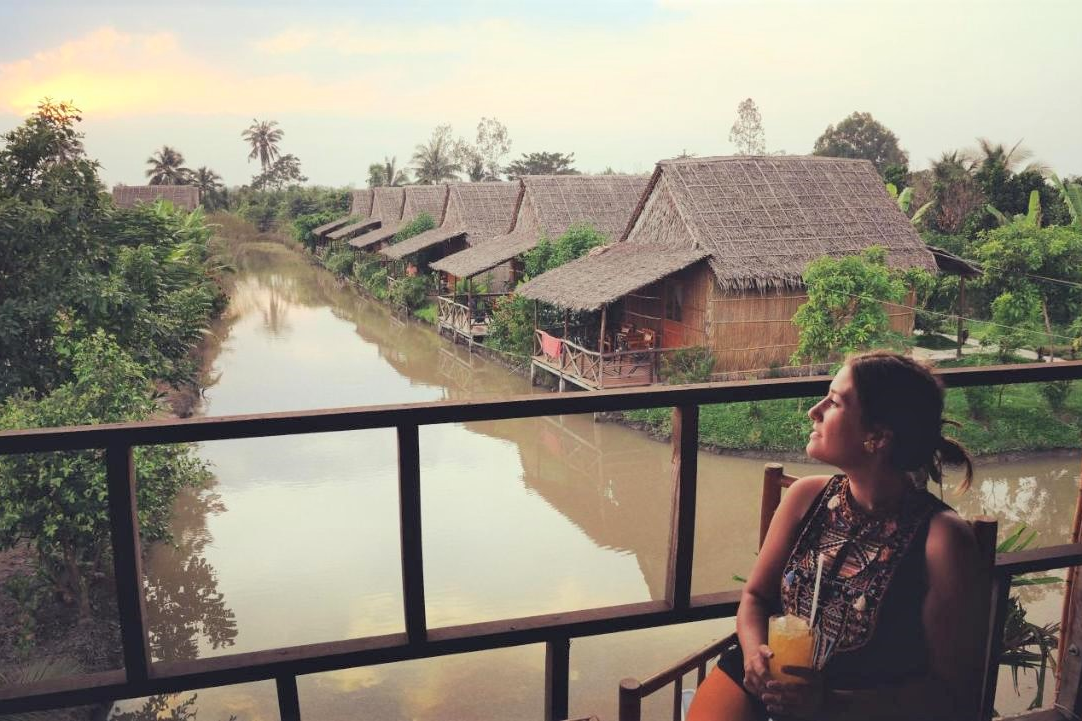
Insider Tip: Rent a bike from your homestay if possible. They often have better quality bikes than those found in town. And your hosts can suggest scenic routes off the beaten path.
One memorable afternoon, Tran’s son, Minh, took me on a boat tour of the nearby floating markets. We set out in a narrow sampan, weaving through a maze of larger vessels laden with produce. At Can Tho market, the largest in the region, I watched in awe as vendors tossed fruits. I also saw vegetables between boats with practiced ease. The air was thick with the calls of hawkers and the pungent scent of durian.
Minh explained that each boat hangs a sample of their wares on a tall pole. That’s traditional ‘advertisement’ visible from afar. This ingenious system has been in use for generations. Allowing buyers to find what they need in the sprawling aquatic marketplace.
Cultural Immersion: Connecting Through Food and Tradition
As the sun began to set, we returned to the homestay for a cooking class. Tran patiently guided me through the process of making banh xeo. That’s a crispy rice pancakes filled with pork, shrimp, and bean sprouts. The sizzle of batter hitting the hot pan and the fragrant aroma of herbs filled the kitchen. It created a sensory experience I’ll never forget.

Over dinner, shared family-style on low tables, I learned more about the challenges and joys of life in the delta. Tran spoke of the changing climate and its impact on farming, while her husband regaled us with tales of his youth, when the rivers were the only highways and boats the primary mode of transport.
The evening ended with a performance of don ca tai tu, a traditional form of southern Vietnamese folk music. As the haunting melodies of the dan bau (monochord) filled the air, I felt a deep connection to this place and its people.
Practical Tips for Your Mekong Delta Homestay
- Timing is Everything: The best time to visit is during the dry season (December to April) when the weather is more predictable. However, the rainy season (May to November) offers lush landscapes and fewer tourists.
- Pack Smart: Bring lightweight, breathable clothing and plenty of insect repellent. A hat and sunscreen are essential for bike rides and boat trips.
- Respect Local Customs: Dress modestly, especially when visiting temples or homes. Remove your shoes before entering living areas.
- Learn Basic Vietnamese: A few simple phrases go a long way in building rapport with your hosts and locals.
- Budget Wisely: While homestays are generally affordable, factor in costs for activities and transportation. Many places are cash-only, so come prepared.
- Embrace the Unexpected: Be open to spontaneous invitations and experiences. Some of my most cherished memories came from unplanned moments, like joining a local wedding celebration or helping to harvest rice.
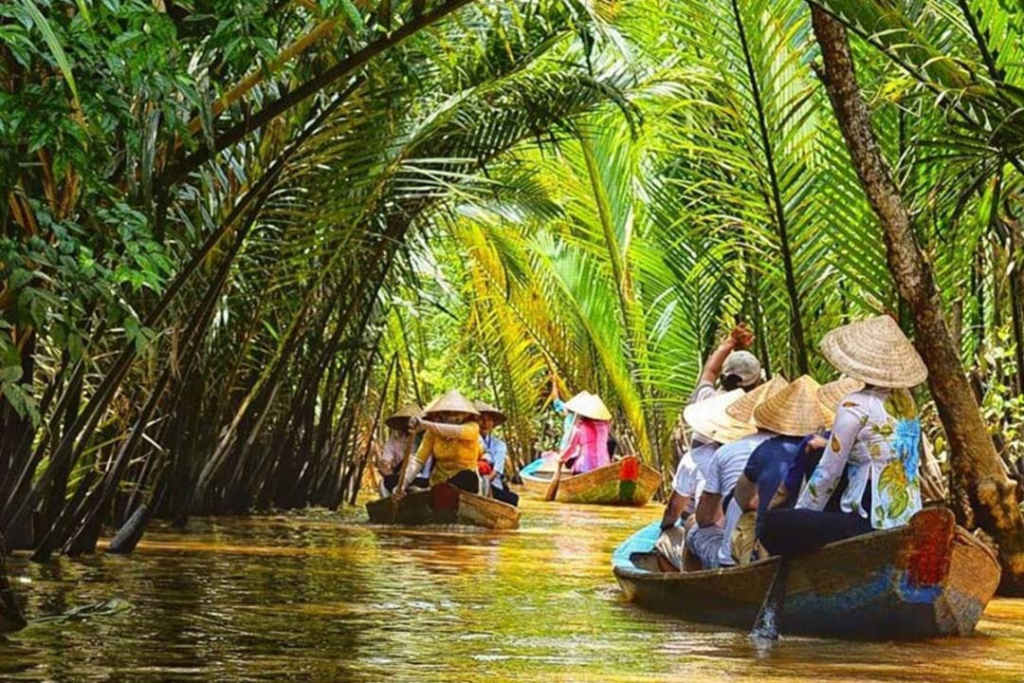
Conclusion
As I reluctantly packed my bags on the final morning of my stay, I realized that the Mekong Delta had given me far more than just a place to sleep. It had offered a glimpse into a way of life that, despite the encroachment of modernity, remains deeply rooted in tradition and community.
For those seeking to explore more of Vietnam’s diverse landscapes and cultures, visit FindTourGo to discover other unique destinations that await your adventure.

